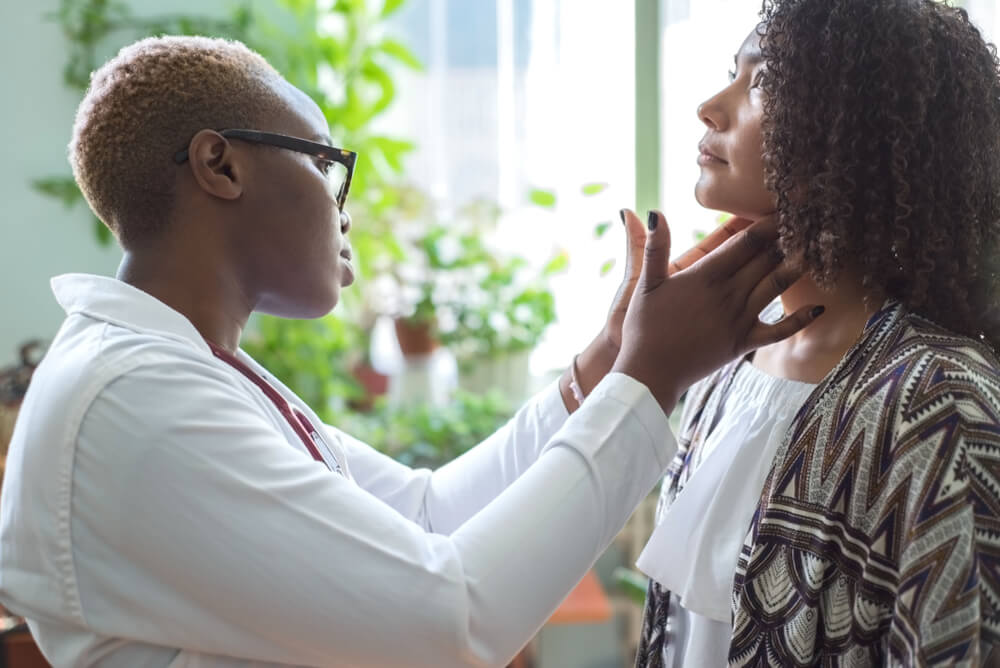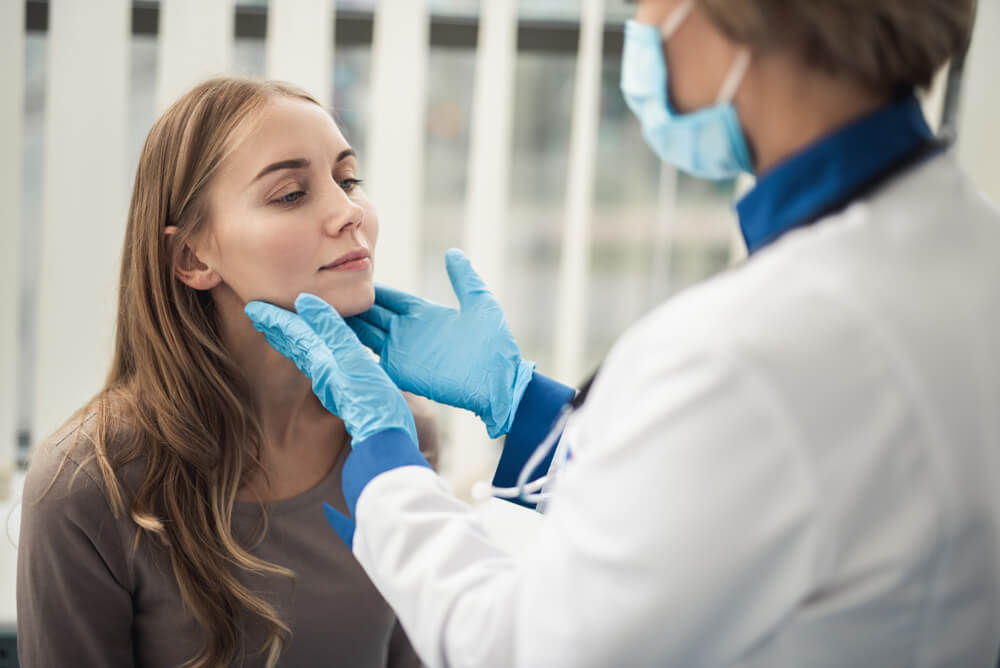Gonorrhea is a sexually transmitted disease (STD) that is commonly associated with genital infections. However, most people don’t know that gonorrhea can also infect the throat through oral sex. This is known as oral or throat gonorrhea and is becoming increasingly common, especially among young adults.
In this article, we will discuss the symptoms, causes, treatment, and prevention of gonorrhea in the throat. If you believe you’ve been exposed to the gonorrhea bacteria, don’t hesitate to seek expert gynecological care in Margate, Florida, as soon as possible.
What Is Oral Gonorrhea?
Oral or throat gonorrhea is a bacterial infection caused by the Neisseria gonorrhoeae bacteria. It is transmitted through oral sex and can infect the throat, mouth, and tonsils. Although gonorrhea is often associated with genital infections, it can also infect the throat, especially in people who engage in oral sex without protection.
Typical Throat Gonorrhea Symptoms

The throat gonorrhea symptoms are often silent, which means that many people may not realize that they have it. However, some people may experience symptoms such as:
- Sore throat
- Redness or swelling in the throat
- Difficulty swallowing
- White or yellow spots on the tonsils or throat
- Swollen lymph nodes in the neck
- Fever
It’s important to note that many of these symptoms are similar to those of strep throat or a common cold. Therefore, it’s essential to get tested for gonorrhea if you experience any of these symptoms, especially if you have recently engaged in oral sex.
How Does Throat Gonorrhea Spread?
Gonorrhea in the throat is spread via oral sex with an already infected person. The bacteria can infect the throat, mouth, and tonsils and can also be contracted through kissing. Although the risk of transmission is lower than that of vaginal or anal sex, it is still a significant risk, especially in people with multiple sexual partners.
The Throat Gonorrhea Treatment
Gonorrhea in the throat is usually treated with antibiotics. The most common throat gonorrhea treatment includes prescribed antibiotics, such as ceftriaxone, azithromycin, and doxycycline. These antibiotics can effectively kill the bacteria and cure the infection. It’s essential to take the full course of antibiotics, even if the symptoms go away, to prevent the infection from coming back.
Oral Gonorrhea vs. Strep Throat
Oral gonorrhea is often mistaken for strep throat because the symptoms are similar. However, there are some differences between the two. Strep throat is caused by a different type of bacteria, and it usually presents with a higher fever and more severe symptoms. Oral gonorrhea is usually milder and presents with a sore throat, white spots on the tonsils, and swollen lymph nodes in the neck.
Can a Mouthwash Be Used as a Throat Gonorrhea Treatment?
Although mouthwash can help kill bacteria in the mouth, it is ineffective in treating gonorrhea in the throat. Antibiotics are the only effective treatment for this infection.
What Happens if Oral Gonorrhea Goes Untreated?
If left untreated, oral gonorrhea can further cause serious health complications. The bacteria can spread to other parts of the body, including the genitals, eyes, and joints. In women, it can lead to pelvic inflammatory disease (PID), which can even end in infertility. It can lead to epididymitis in men, which can also cause infertility. In rare cases, oral gonorrhea can even lead to sepsis, a life-threatening condition.
Preventing Throat Gonorrhea
The best way to prevent contracting gonorrhea in the throat is to practice safe sex. This means using dental dams or condoms during oral sex. Get tested for STDs regularly, especially if you have multiple sexual partners.
If you are diagnosed with oral gonorrhea, avoid oral sex until the infection is completely cured. It’s also important to inform your sexual partner(s) so that they can get tested and treated if necessary.
How to Tell Your Partner(s) About Gonorrhea in the Throat
Telling your sexual partner(s) about a gonorrhea infection can be uncomfortable, but it’s crucial for their health and the health of others.
Here are some tips on how to tell your partner(s) about oral gonorrhea:
- Be honest and straightforward: Tell your partner(s) that you have been diagnosed with oral gonorrhea and that they should get tested and treated as well.
- Provide information: Explain what gonorrhea is, how it is transmitted, and the symptoms they should look out for.
- Be supportive: Let your partner(s) know that you are there to support them and that STDs are a common problem that can be easily treated.
- Encourage testing: Offer to go with your partner(s) to get tested and treated if they feel uncomfortable going alone.
The Likelihood of Recurrence

The likelihood of recurrence of oral gonorrhea depends on a number of factors, including the effectiveness of the treatment received, the individual’s immune system, and their sexual behaviors. If oral gonorrhea is treated properly with antibiotics, the infection should clear up within a few days to a week. However, if the individual continues to engage in unprotected oral sex with an infected partner or multiple partners, the risk of recurrence increases.
Additionally, if the individual’s immune system is weakened due to illness or medication, they may be more susceptible to recurrent infections. It’s essential to complete the entire course of antibiotics prescribed by a healthcare provider, even if symptoms improve, to ensure that the infection is completely cured.
Individuals who have been diagnosed with throat gonorrhea should also abstain from sexual activity until the infection is completely cured to avoid re-infection. Practicing safe sex and getting tested regularly can also help reduce the risk of recurrence and the spread of the infection.
If oral gonorrhea recurs, make it a point to seek medical attention to ensure that the infection is properly treated and to prevent potential health complications.
When to See a Doctor
If you experience any symptoms of oral gonorrhea, it’s essential to see a doctor or healthcare provider. They can perform a test to diagnose the infection and provide the appropriate treatment. Also, see a doctor if you have had unprotected oral sex with someone who has gonorrhea, even if you don’t have any symptoms.
Pay Us a Visit
Basically, throat gonorrhea is a silent threat that can lead to serious health complications if left untreated. Practicing safe sex and getting tested regularly can help prevent the spread of this infection. If you experience any symptoms of oral gonorrhea, make sure to see a doctor as soon as possible to get tested and treated. Remember, being open and honest with your sexual partner(s) can help prevent the spread of STDs and promote healthy sexual practices.
This may be an uncomfortable topic, but your health should always be a priority. Don’t hesitate to get in touch with us at Fern F. Taisenchoy-Bent, MD LLC, for supportive, compassionate, and expert medical care.



